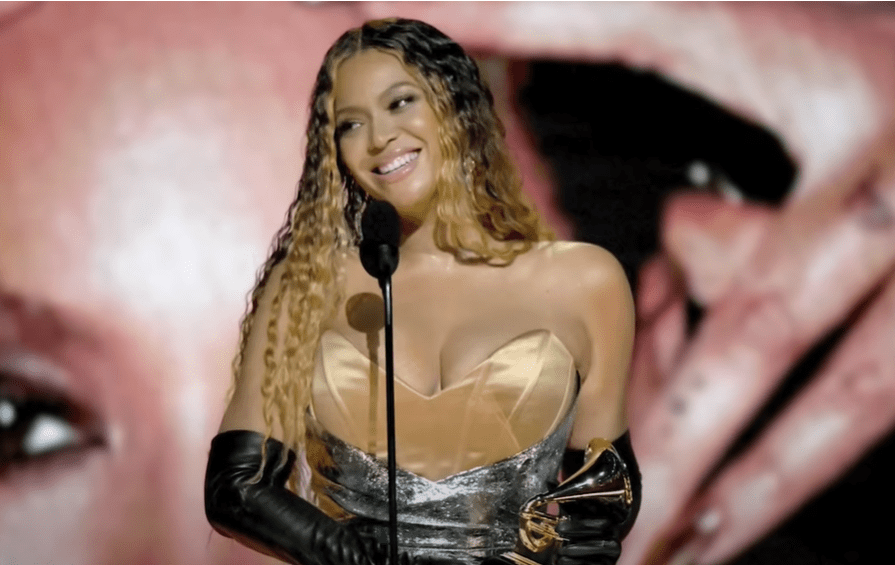
Beyoncé has gone country. In anticipation of her upcoming new album, the iconic entertainer released two singles with some serious twang. “16 Carriages” and “Texas Hold ‘Em” have soared up the streaming charts, with “Texas Hold ‘Em” debuting at Number 1 on the Billboard Hot Country Songs chart. When one of the most prominent artists in the world decides to shift genres, although Beyoncé’s work has always touched on her Southern roots, it’s bound to touch a few nerves.
This is the same Beyoncé who’s been R&B royalty for years, who upset critics with her unapologetically Black Super Bowl halftime show in 2016, and whose 2023 Renaissance World Tour was a traveling showcase of pride, glamour and diversity of all kinds. She’s a strange fit for the slowly evolving, white, conservative country world, or is she? After all, no one loves a diva like country music. Reba McEntire, Carrie Underwood, and Dolly Parton are only the beginning. Since women broke into country music in the ‘50s, they’ve been taking us to heaven with their teased hair, blinding us with rhinestones and singing songs that celebrate the complexity and power of womanhood.
What makes a diva different from other performers? Of course, there’s a look epitomized in the authentic, confident glamor of Tina Turner, Dolly Parton, and Mariah Carey. “Diva” was initially an opera term for female singers whose fame and talent made them nearly divine in the eyes of their admirers. The expectation of a big, mighty voice has carried through the times, in Whitney Houston, Aretha Franklin, and Carrie Underwood. A diva is timeless and is typically used to describe women with long, illustrious careers, like Celine Dion, Cher, Gloria Estefan, and Reba McEntire. However, other definitions can complicate the terms.
Being a diva suggests a particular kind of womanly arrogance. Much like the word ‘slut,’ it has no equally powerful corresponding masculine term. Speaking specifically of Black divas, they sing about triumph, love, dating, dancing, and transcendence, typically over the neck of some man in particular or men in general. That may not sound like country music, but consider this: In a genre historically monopolized by White men and conservative notions, what kind of woman dares to make it to the top? Challenging a man in some way, even surpassing him in success, that’s diva behavior.
When Beyoncé released her iconoclastic 2016 album “Lemonade,” people were shocked by the raw drama of the track “Sorry.” The scathing and specific lyrics about infidelity were widely thought to refer to her husband, Jay-Z, which shone a new light on a partnership between two stratospherically successful artists. In more recent decades, Carrie Underwood, Miranda Lambert and other country divas have carried on the proud tradition of being women you definitely wouldn’t want to cross in a bar fight. Underwood’s “Before He Cheats” may be her most famous revenge song, but it’s not her only one: “Four Black Cadillacs,” “Church Bells,” and “Blown Away” all describe the fates of men misbehaving and, well,, a trip to Fist City sounds good in comparison.
The ladies of country have never been docile, and they certainly don’t apologize for themselves or their bodies or the space they take up. “It takes a lot of money to look this cheap,” Dolly Parton famously said, ultimately owning her glamorous, over-the-top appearance. Such bold, bright, talented, unapologetic women make good company for Beyoncé, one of the top-selling recording artists in history with a cultural footprint too massive to describe. Beyoncé has also hit the country charts during a resurgence of “glam country,” where fashion, femininity and good music meet — an ideal stomping ground for divas present and future. However, a diva’s work isn’t complete until it makes someone angry.
“They’ve got to make their mark, like a dog at a dog walk park, you know every dog has to mark every tree, so that’s what’s going on here,” former “Dukes of Hazzard” star John Schneider said during a widely-panned OAN interview in which he used Beyoncé as an example to claim “leftists” are ruining country music. Aside from the fact country music has always been full of “leftists,” Beyoncé is far from the first Black woman to break into country.
Linda Martell led a trailblazing career as the first Black woman to play at the Grand Ole Opry in 1970 but ultimately left the Nashville scene because of discrimination and exploitation. Tina Turner, a diva among divas, released a Grammy-nominated country album, “Tina Turns the Country On!” in 1974. Newcomers like Tanner Adell embrace a country aesthetic that’s part girly-pop glam and part down-and-dirty realness.
